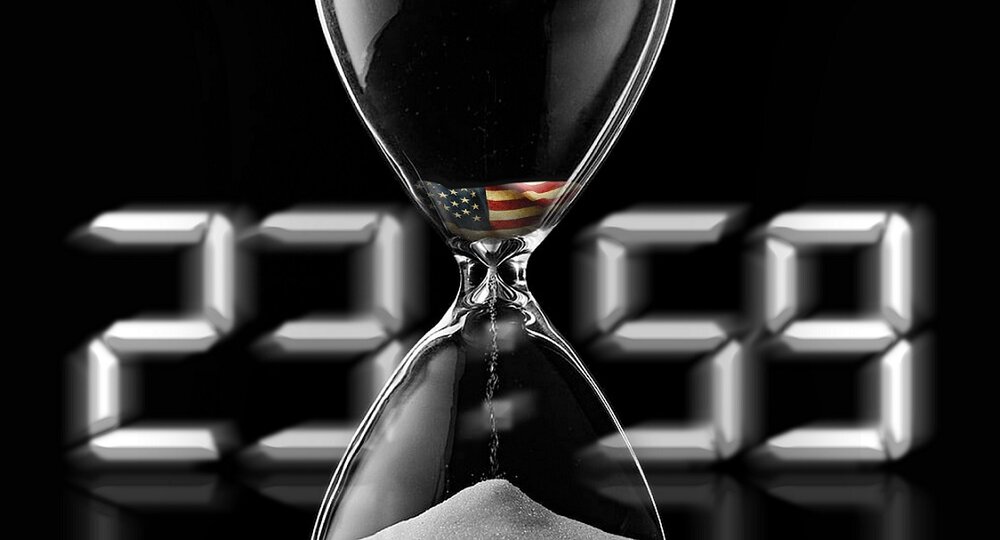No time left to waste

TEHRAN – The clock is ticking on the Biden administration’s promise to rejoin the 2015 nuclear deal because Iran has waited for so long to see a wise leadership taking the helm in Washington. Therefore, any procrastination on part of the United States under President Joe Biden will most likely spell the end of the nuclear deal, which has now been on life support of more than two years.
“The ball is in the U.S. court now,” Iranian President Hassan Rouhani said at a cabinet session on Wednesday, in the latest sign that the U.S. should take the first step to revive the nuclear deal because it was the U.S, not Iran, that withdrew from the deal – officially known as the Joint Comprehensive Plan of Action (JCPOA) – in May 2018.
Former President Donald Trump pulled the U.S. out of the Iran nuclear deal in 2018, calling it the worst deal in history, and vowing to replace it with a “better” deal with Iran; one that would put permanent restrictions on Iran’s nuclear program, curb Iran’s missile program and reign in its influence in the West Asia region. To this end, Trump imposed a multitude of sanctions on Iran with the purpose of forcing it into accepting his demands through strangling its economy. Trump failed to make any breakthroughs with Iran and came close to an all-out war with the Islamic Republic on several occasions.
On the other hand, Iran exercised maximum restraint in the face of what came to be known as “maximum pressure campaign,” a U.S. policy that aims to choke off Iran’s economy in order to push it into reopening the JCPOA. Tolerating all kinds of pressure from the Trump administration, Iran decided to remain a JCPOA participant state while chipping away at its commitments under the pact. On the first anniversary of the U.S. withdrawal from the JCPOA, Iran took the step to gradually reduce its nuclear commitments. Iran suspended the implementation of some JCPOA obligations in five steps, all of which were taken in line with the terms of the nuclear deal.
Meanwhile, the European signatories to the JCPOA – France, Germany and the UK (collectively known as E3) – sought to convince Iran into remaining in the deal by vowing to provide Iran some relief of the U.S. sanctions. The E3 floated the idea of establishing a barter trade mechanism to bypass U.S. sanctions on Iran. The idea culminated in the E3 establishing a barter mechanism called INSTEX, which failed to facilitate to even humanitarian trade with Iran. Of course, the Europeans blamed the failure of the mechanism on Iran. But this did not change the fact that Europe miserably failed to preserve the JCPOA by securing Iran’s economic interests.
However, despite the U.S. unprecedented pressures, Iran continued to honor the core commitments of the deal, giving the International Atomic Energy Agency’s international inspectors regular access to its nuclear facilities even during the process of reducing nuclear commitments. In fact, Iran has never moved to restrict, let alone cut, the UN nuclear watchdog’s inspections of its nuclear plants.
Unlike what the U.S. and its European allies claim, Iran has strictly complied with its nuclear commitments even when it began to walk away from some of its JCPOA commitments. At the end of the day, all Iran’s nuclear measures were done under the watchful eyes of IAEA inspectors.
In a nutshell, Iran made a strategic decision to abide by its nuclear obligations over the course of the Trump administration in the hope of reviving the JCPOA under a wise and different administration in Washington, though the E3 failed to compensate Iran for the loss caused by the Trump administration.
Iranian Foreign Minister Mohammad Javad Zarif reminded the E3 of this fact in mid-January when he strongly responded to remarks by his French counterpart Jean-Yves Le Drian who called for “tough discussions” with Iran over its missile program and regional influence.
The French foreign minister pointed out that the return of Iran and the U.S. to the nuclear deal would not be enough because there is a need to talk about other issues.
“Tough discussions will be needed over ballistic proliferation and Iran’s destabilization of its neighbors in the region,” the French foreign minister told the Journal du Dimanche newspaper, according to a Reuters report.
Zarif told Le Drian the E3 failed to honor their JCPOA commitments and if the deal is still alive, it’s only because of Iran.
“E3 leaders—who rely on signature of OFAC functionaries to carry out their obligations under JCPOA—have done ZILCH to maintain JCPOA. Remember @EmmanuelMacron's stillborn initiative or UK non-payment of court-ordered debt? JCPOA is alive because of Iran and not E3, @JY_LeDrian,” Zarif tweeted on January 17.
But Iran may soon give up on its hope to revive the JCPOA if the Biden administration raises time-wasting, non-nuclear issues and fails to seize on the momentum created by the new U.S. president’s desire to revive deals such as the Paris climate accord that were jettisoned by Trump. Iran tolerated at least two years of unprecedented pressure to preserve the JCPOA. And this seemed to be affordable for Iran given the huge challenges Trump faced before the 2020 U.S. presidential election. But now if Biden reneges on his campaign promise to rejoin the JCPOA one way or another, Iran may find no reason to cling to a deal it did not benefit from. Therefore, the Biden administration does not enjoy the luxury of having some more time to repair what Trump destroyed.
Leave a Comment